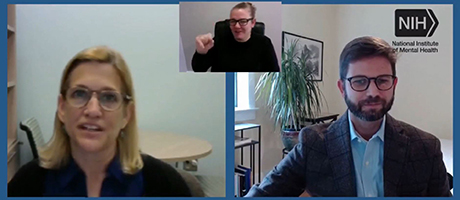News and Multimedia Featuring IRP
-
 Study Illuminates the Genetic Architecture of Bipolar Disorder• Research Highlight
Study Illuminates the Genetic Architecture of Bipolar Disorder• Research HighlightLargest-ever genome-wide study of a diverse group of people with bipolar disorder sheds new light on the genetic architecture underlying the disorder.
-
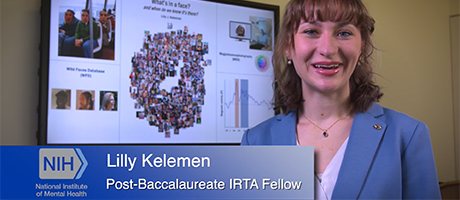 Lilly Kelemen, Winner of the 2024 NIMH Three-Minute Talks Competition• Video
Lilly Kelemen, Winner of the 2024 NIMH Three-Minute Talks Competition• VideoLilly Kelemen discusses naturalistic facial expressions, perception of emotion on human faces, and disabilities that make it difficult to read expression.
-
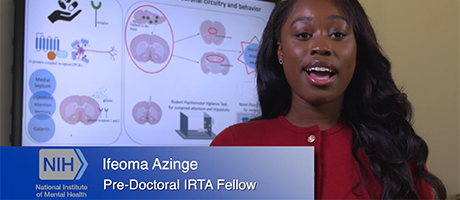 Ifeoma Azinge, Winner of the 2024 NIMH Three-Minute Talks Competition• Video
Ifeoma Azinge, Winner of the 2024 NIMH Three-Minute Talks Competition• VideoIfeoma Azinge discusses the influence of the neuropeptide galanin on neuronal circuitry and behavior—and potential implications for mental health.
-
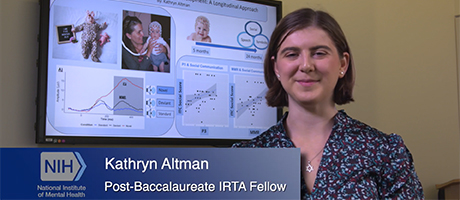 Kathryn Altman, Winner of the 2024 NIMH Three-Minute Talks Competition• Video
Kathryn Altman, Winner of the 2024 NIMH Three-Minute Talks Competition• VideoKathryn Altman discusses a longitudinal study that examined the neural response to novelty as a potential predictor for communication development.
-
 New Hope for Rapid-Acting Depression Treatment• Research Highlight
New Hope for Rapid-Acting Depression Treatment• Research HighlightA new study, funded in part by the National Institute of Mental Health, showed that a new medication derived from ketamine is safe and acceptable for use in humans, setting the stage for clinical trials testing it for hard-to-treat mental disorders like severe depression.
-
 Getting to the NIH Clinical Center• Video
Getting to the NIH Clinical Center• VideoHere is a video to help you get to your appointment on the NIH campus in Bethesda, Maryland.
-
 Increases Found in Preteen Suicide Rate• Media Advisory
Increases Found in Preteen Suicide Rate• Media AdvisoryResearchers at the National Institutes of Health (NIH) found that rates of preteen suicide (ages 8-12) have been increasing by approximately 8% annually since 2008.
-
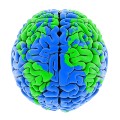 Youth With Conduct Disorder Show Widespread Differences in Brain Structure• Press Release
Youth With Conduct Disorder Show Widespread Differences in Brain Structure• Press ReleaseThe largest neuroimaging study of conduct disorder to date, with funding from NIH, has revealed extensive changes in brain structure among young people with the disorder. The largest difference was a smaller area of the brain’s outer layer, known as the cerebral cortex, which is critical for many aspects of behavior, cognition and emotion.
-
 Basic Research Powers the First Medication for Postpartum Depression• Feature Story
Basic Research Powers the First Medication for Postpartum Depression• Feature StoryDecades of NIMH-supported basic research led to a pioneering treatment for postpartum depression and continues to power exciting advances in women's mental health care.
-
 Novel Treatment Helps Children With Severe Irritability• Research Highlight
Novel Treatment Helps Children With Severe Irritability• Research HighlightA new study by NIMH researchers demonstrated the effectiveness, feasibility, and safety of exposure-based cognitive behavioral therapy for severe irritability and temper outbursts in children. The positive results set the foundation to continue exploring exposure therapy as a potential treatment for childhood irritability.
-
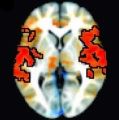 NIH Researchers Identify Brain Connections Associated With ADHD in Youth• Media Advisory
NIH Researchers Identify Brain Connections Associated With ADHD in Youth• Media AdvisoryResearchers at the National Institutes of Health (NIH) have discovered that symptoms of attention-deficit/hyperactivity disorder (ADHD) are tied to atypical interactions between the brain’s frontal cortex and information processing centers deep in the brain.
-
 Cognitive Behavioral Therapy Alters Brain Activity in Children With Anxiety• Press Release
Cognitive Behavioral Therapy Alters Brain Activity in Children With Anxiety• Press ReleaseResearchers at the National Institute of Mental Health found that unmedicated children with anxiety disorders show widespread overactivation in brain functioning and that treatment with cognitive behavioral therapy led to a clinically significant drop in anxiety symptoms and improved brain functioning.
-
 Disparities in Psychotic Disorder Diagnoses and Other Negative Health Outcomes• Research Highlight
Disparities in Psychotic Disorder Diagnoses and Other Negative Health Outcomes• Research HighlightNIMH researchers found racial and ethnic disparities in rates of psychotic disorders, which were associated with co-occurring medical conditions and negative health outcomes.
-
 Isabel Wilder, Winner of the 2023 NIMH Three-Minute Talks Competition• Video
Isabel Wilder, Winner of the 2023 NIMH Three-Minute Talks Competition• VideoIsabel Wilder discusses white matter is made up of myelinated nerve tracts and acts as a relay coordinating communications between brain regions. Myelin is a protective sheath composed of fatty lipids, which greatly enhance the efficiency of these communications. And in fact, this myelin is what makes white matter in the human brain appear white.
-
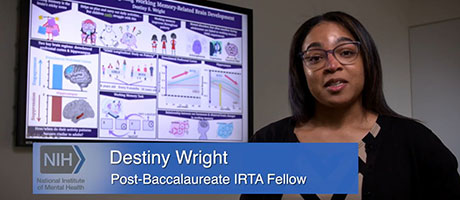 Destiny Wright, Winner of the 2023 NIMH Three-Minute Talks Competition• Video
Destiny Wright, Winner of the 2023 NIMH Three-Minute Talks Competition• VideoDestiny Wright discusses working memory can be thought of as the brain’s sticky notes allowing us to briefly hold and manipulate information. We use it to plan and carry out everyday tasks, such as making a list of chores or remembering bedtime routines, which as we know are things that young children really struggle with.
-
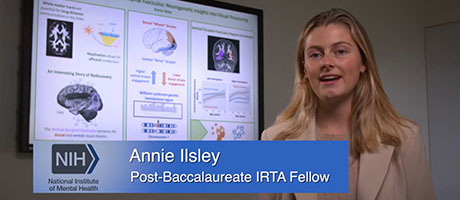 Annie Ilsley, Winner of the 2023 NIMH Three-Minute Talks Competition• Video
Annie Ilsley, Winner of the 2023 NIMH Three-Minute Talks Competition• VideoAnnie Ilsley discusses white matter composes about half the brain and forms pathways that are essential for communication between regions. Myelination is a key, neurodevelopmental process in which a fatty sheath, known as myelin, envelops neuronal axons that form white matter tracks, acting as insulation and allowing for efficient conduction through these pathways.
-
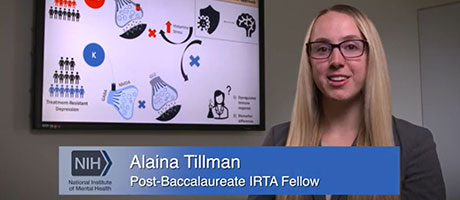 Alaina Tillman, Winner of the 2023 NIMH Three-Minutes Talks Competition• Video
Alaina Tillman, Winner of the 2023 NIMH Three-Minutes Talks Competition• VideoAlaina Tillman discusses psychiatry is moving toward a precision medicine model. For patients diagnosed with depression, selective serotonin re-uptake inhibitors, SSRIs, are the most common treatment administered. However, for SSRIs, only about half of patients experience a relief of symptoms.
-
 Cracking the Ketamine Code• Feature Story
Cracking the Ketamine Code• Feature StoryNIMH supported science and NIMH researchers helped pave the way for the development of ketamine—a groundbreaking treatment that has improved the lives of those who are impacted by treatment-resistant depression.
-
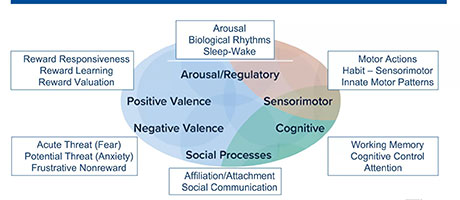 The Center for Global Mental Health Research Webinar Series 2023: Real-World Opportunities and Challenges: Using NIMH's Research Domain Criteria (RDoC) Framework in Global Mental Health Research• Video
The Center for Global Mental Health Research Webinar Series 2023: Real-World Opportunities and Challenges: Using NIMH's Research Domain Criteria (RDoC) Framework in Global Mental Health Research• VideoThis webinar discussed the National Institute of Mental Health’s Research Domain Criteria (RDoC) initiative and its potential to inform (and be informed by) global mental health research. RDoC is a research framework that encourages the investigation of mental disorders from a perspective of basic functional dimensions (e.g., cognitive control), using many types of information – from genomics and neuroscience to behavior and environmental measures.
-
Facebook Live: Youth Suicide Prevention• Video
In recognition of National Suicide Prevention Awareness Month in September, the National Institute of Mental Health (NIMH) hosted a Facebook Live event on youth suicide prevention.
-
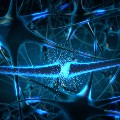 Researchers Find Order in the Language of the Brain• Research Highlight
Researchers Find Order in the Language of the Brain• Research HighlightNew research supported by NIMH used mathematical approaches to explain how neurons in the brain communicate over time to support information processing.
-
 Youth Suicide Rates Increased During the COVID-19 Pandemic• Research Highlight
Youth Suicide Rates Increased During the COVID-19 Pandemic• Research HighlightIn one of the first studies to examine national youth suicide rates during the COVID-19 pandemic, researchers showed that the pandemic increased youth suicide rates and the impact varied by sex, age, and race and ethnicity.
-
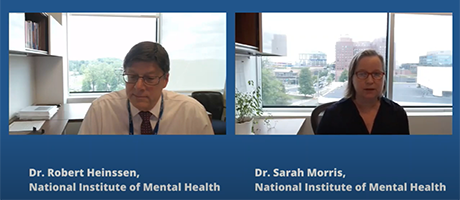 Facebook Live: Understanding Schizophrenia• Video
Facebook Live: Understanding Schizophrenia• VideoIn recognition of Mental Health Awareness Month, NIMH conducted a Facebook Live on schizophrenia.
-
 Facebook Live: Bipolar Disorder in Adults• Video
Facebook Live: Bipolar Disorder in Adults• VideoIn recognition of World Bipolar Day, NIMH experts conducted a Facebook Live event on bipolar disorder in adults.
-
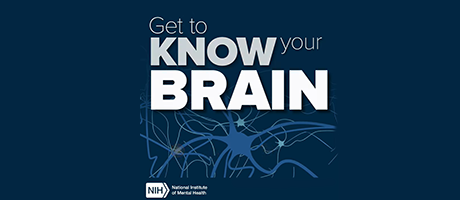 Get to Know Your Brain• Video
Get to Know Your Brain• VideoYour brain powers your thoughts, emotions, and actions, controlling every blink and heartbeat. Discover its parts and what each area does!
-
 NIMH Creates Publicly Accessible Resource With Data From Healthy Volunteers• Research Highlight
NIMH Creates Publicly Accessible Resource With Data From Healthy Volunteers• Research HighlightThe NIMH Healthy Research Volunteer Study aims to build a comprehensive, publicly accessible resource with a range of brain and behavioral data from healthy volunteers.
-
 Dr. Elisabeth Murray Honored With Mika Salpeter Lifetime Achievement Award• Institute Update
Dr. Elisabeth Murray Honored With Mika Salpeter Lifetime Achievement Award• Institute UpdateDr. Elisabeth A. Murray has been honored with the 2022 Mika Salpeter Lifetime Achievement Award from the Society for Neuroscience recognizing her distinguished career in biomedical research and dedication to mentoring future leaders in neuroscience.
-
 A Clinical Pathway for Suicide Risk Screening in Adult Primary Care• Research Highlight
A Clinical Pathway for Suicide Risk Screening in Adult Primary Care• Research HighlightAn NIMH-supported workgroup developed an evidence-based screening pathway to help primary care doctors identify adults at risk of suicide and bridge them to critical mental health services.

